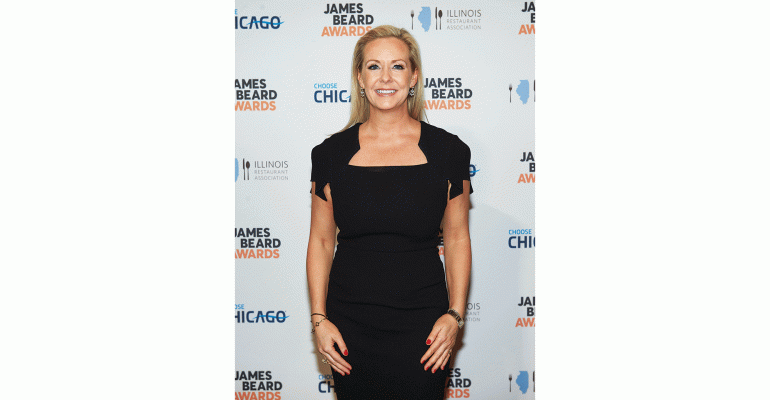 The annual NRN Power List is the definitive list of people setting foodservice trends today and shaping them for tomorrow. See the full list >>
The annual NRN Power List is the definitive list of people setting foodservice trends today and shaping them for tomorrow. See the full list >>
Clare Reichenbach, CEO, James Beard Foundation
The James Beard Foundation — the organization perhaps best known for its annual best-in-the-industry awards — has gone through a shake-up recently in response to the equity, inclusivity and anti-harassment movements. The foundation’s CEO Clare Reichenbach recently has made a number of changes to keep the organization in tune with the evolving times.
At the helm since January 2018, Reichenbach brought sweeping changes that address some of the racial, ethnic and gender homogeneity within both the restaurant industry and the awards program. In 2018, a record number of women — nearly half of all chef nominees — were nominated for Beard awards.
“We believe that having more women at the business helm is a critical driver of the cultural change that is needed in the industry,” Reichenbach said.
In October, the James Beard Foundation announced new diversity initiatives for its annual awards on the heels of the industry’s #MeToo scandals that ousted former award winners Mario Batali and John Besh. The changes include diversifying volunteer committees, retiring the Who’s Who of Food and Beverage in America list (which currently recognizes Batali and Besh), and increasing transparency of the entire voting and judging process.
Additionally, in November, the organization introduced a women’s leadership program called Owning It, designed to open discussion around female entrepreneurship.
“We have a responsibility to role-model the change we want to see in the world — from how diverse we are as an organization and a board, to the level of diversity and inclusivity of our awards and programing,” said Reichenbach.
She also hopes to illuminate the work the organization is doing to promote sustainability and food-waste reduction in the industry.
“I want us to leverage our platform and influence to drive significant positive change in the culinary industry and the broader food system,” Reichenbach said.






